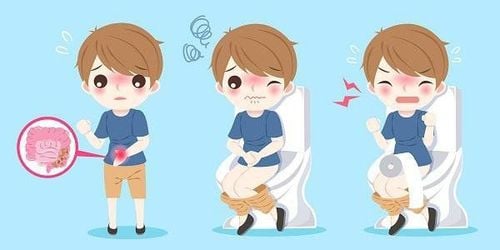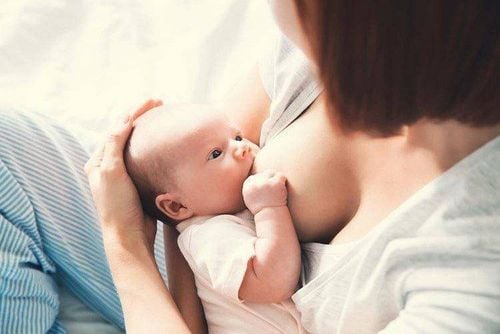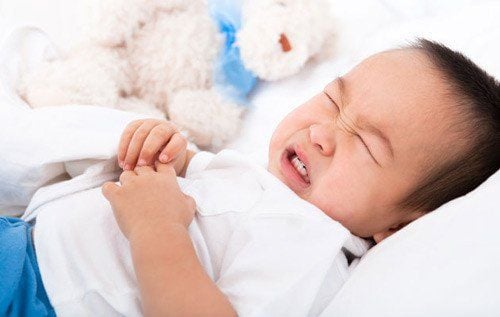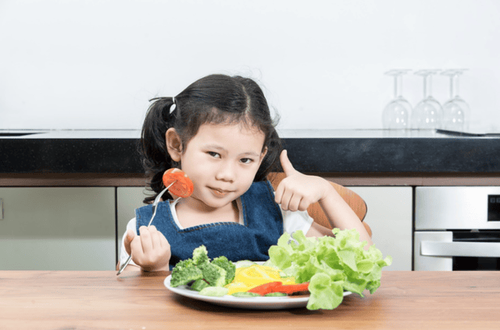This is an automatically translated article.
Acute diarrhea is a common condition in young children, but it is the second leading cause of death in children after respiratory infections. However, mothers can completely prevent disease with simple ways.Video content is professionally consulted by Resident Doctor Ho Thi Hong Tho, Pediatrician - Neonatologist, Vinmec Phu Quoc International General Hospital
1. Acute diarrhea and what parents need to know
Children with acute diarrhea are passing loose or watery stools at least 3 times in 24 hours. The most common cause of acute diarrhea is viral infection; and other causes include bacterial and parasitic infections, side effects of antibiotics, and extra-gastrointestinal infections.And so, the mother also needs to distinguish what is a normal baby poop? The normal volume, frequency, and consistency of stools vary with a child's age, weight, and diet.
In terms of frequency, it is normal for babies to 'pass' 3 to 10 times per day, which varies depending on the child's diet (breastfed babies often pass stools more often than formula fed babies). awake ). Infants, toddlers, and children typically have one to two bowel movements per day.
In terms of consistency and color, infants, especially those who are breastfed, often have soft stools that may be yellow, green or brown, or appear to contain seeds or curds small.
Although acute diarrhea is rarely serious and only needs to be cared for at home. However, if not treated properly and promptly, it can lead to dehydration, an imbalance of electrolytes such as sodium, potassium, chloride) that is serious, affecting the health and life of the child. Therefore, mothers need to pay special attention to the proper care and prevention of diarrhea in children.

2. What should parents do when their child has acute diarrhea?
When children have acute diarrhea, parents need to be careful to avoid infecting themselves, family and friends and take some measures:Wash hands with soap and water for 15 to 30 seconds or water Alcohol-based hand washing is a necessary and very effective way to prevent the spread of infection. Special attention should be paid to fingernails, between fingers and wrists. Hands should be washed thoroughly and dried with a disposable towel. Hands should be washed thoroughly after changing diapers or touching any soiled object, before and after preparing food and eating, after using the toilet, after handling garbage or soiled clothing, after touching animals or pets, and after blowing your nose or sneezing. Do not swim in the pool. Breastfeed exclusively until 6 months of age and continue breastfeeding until the child is two years old. Note for children to eat and drink safe food and water, water should be boiled for at least 5 minutes is optimal for preparing food and drinks for young children. Feces are handled safely. In addition, when children have acute diarrhea, parents taking care of their children at home should note:
Rehydration with Oresol solution Children who are not dehydrated should continue to continue to eat a normal diet. Breastfed babies should continue to breastfeed unless otherwise directed by a doctor. After rehydration, even severely ill children can continue to eat a normal diet. Most children with diarrhea tolerate whole cow's milk products, and it is not necessary to dilute or stop the milk, unless the child is allergic to cow's milk.
Recommended foods include starches (such as rice, wheat, potatoes, bread, ...), lean meat, yogurt, fruits, vegetables and still need to add some oil and fat to the meal. Eat to absorb fat-soluble vitamins. Parents should avoid fried and processed foods that will make it more difficult to absorb, and avoid sports drinks because they have too much sugar and have an inappropriate concentration of electrolytes for children with diarrhea. Feed in smaller amounts, more often, to reduce the risk of vomiting.
In addition, parents need to bring their child to the doctor as soon as the following signs appear:
Bloody diarrhea Refusing to eat or drink anything for more than a few hours in infants and more than eight hours in children. Moderate-to-severe dehydration Intermittent or severe abdominal pain Behavioral changes, lethargy or decreased reactivity Severe, repetitive vomiting Pediatrics - Vinmec International Hospital always leading experts , has high professional qualifications (professor, associate professor, doctorate, master), rich experience, worked in large hospitals, is well-trained, professional, conscientious, knowledgeable. young psychology. Besides domestic pediatricians, the Department of Pediatrics also has the participation of foreign experts (Japan, Singapore, Australia, USA) who are always pioneers in applying the latest and most effective treatment regimens. . Therefore, when children have health problems, parents can take their children to the hospital to be checked for appropriate treatment.
Please dial HOTLINE for more information or register for an appointment HERE. Download MyVinmec app to make appointments faster and to manage your bookings easily.














